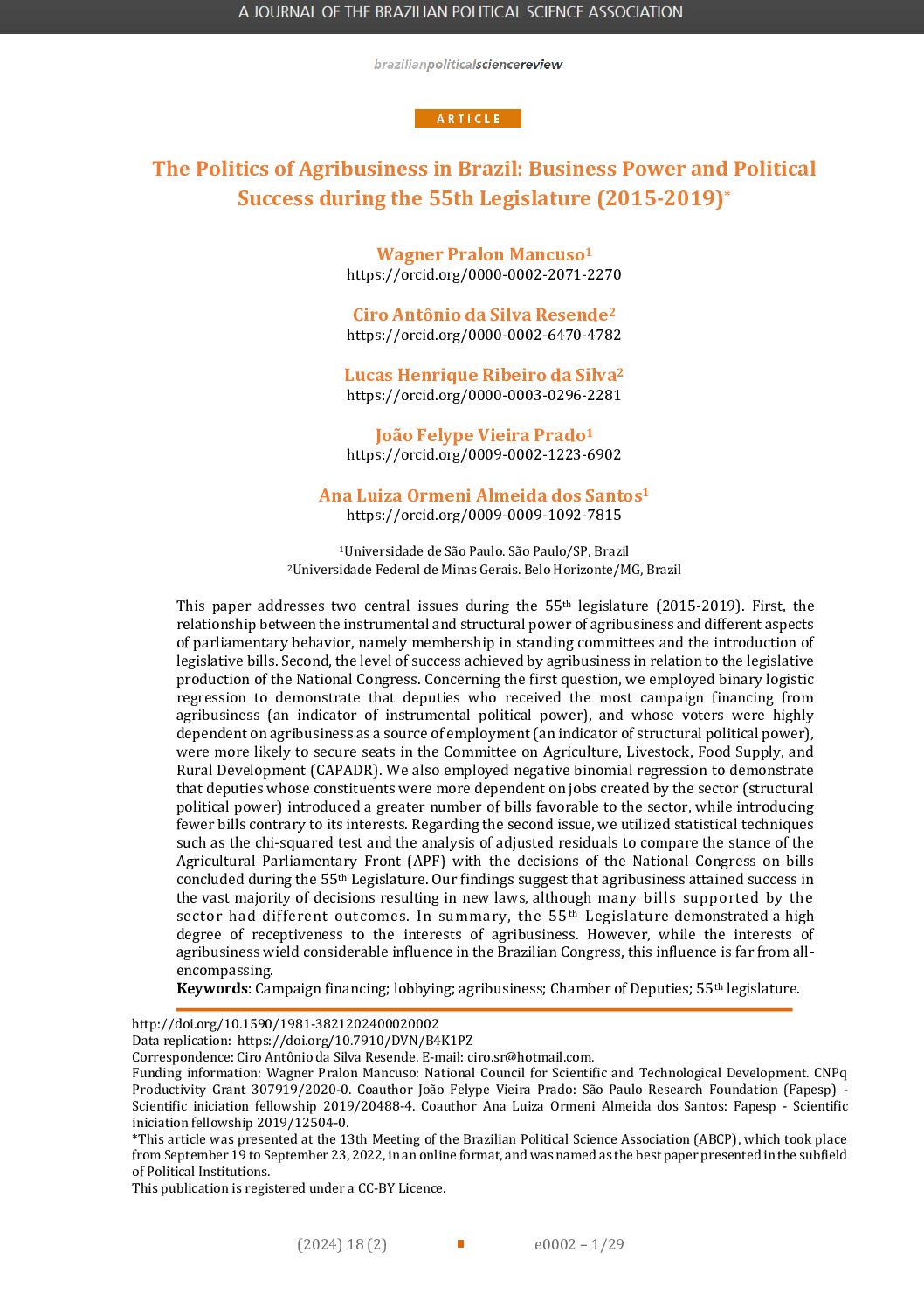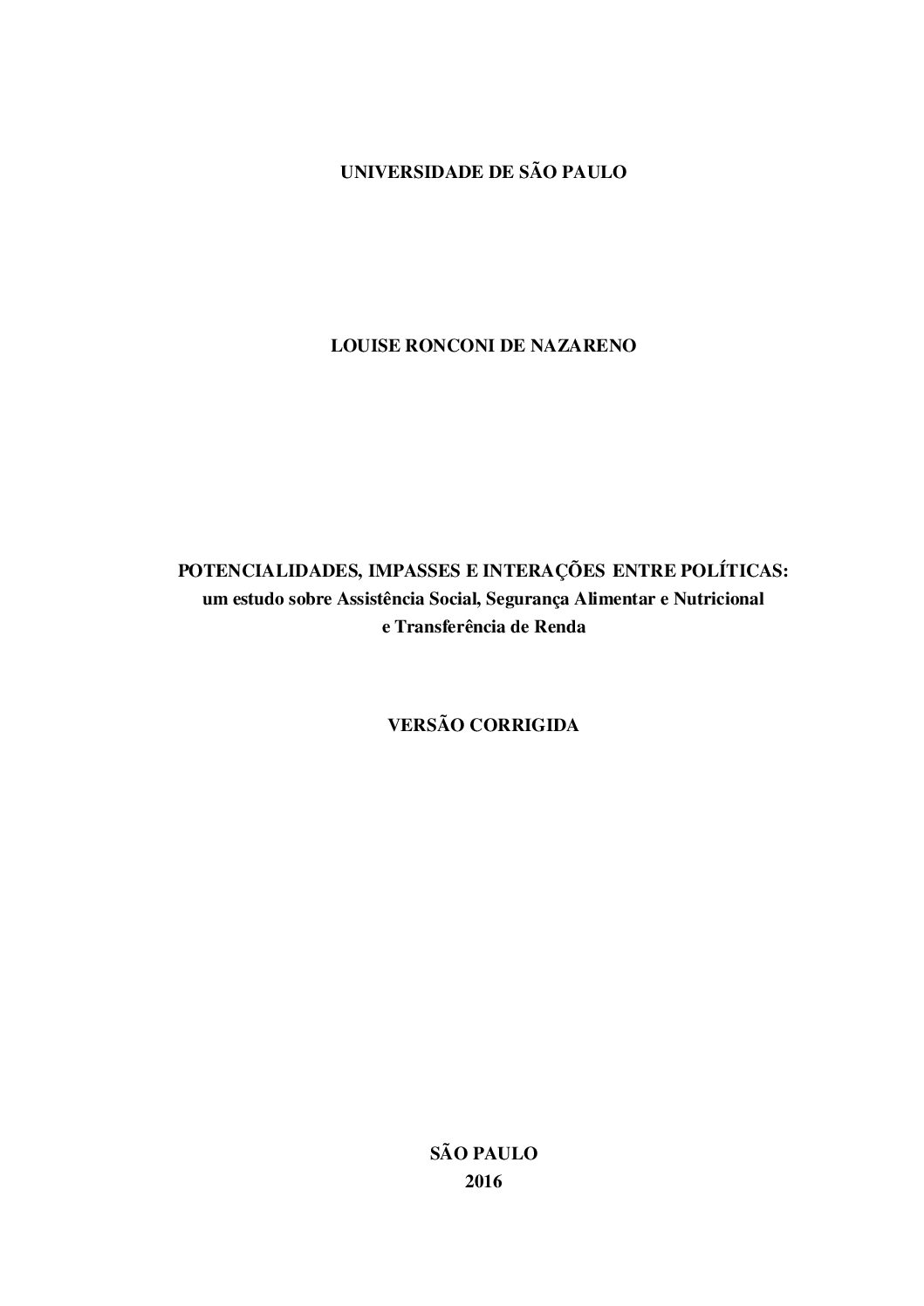
State political reform and democratization
11 de February de 2025
The Politics of Agribusiness in Brazil: Business Power and Political Success during the 55th Legislature (2015-2019)
17 de March de 2025Potentialities, impasses and interactions between policies: a study on Social Assistance, Food and Nutrition Security and Income Transfer

Author: Louise Ronconi de Nazareno
Abstract:
This thesis discusses the intertwining of three areas of social policies – social assistance, food and nutritional security, and income transfer programs – in the recent creation of the Ministry of Social Development and Fight against Hunger (MDS), in the field of Brazilian social development after the Federal Constitution of 1988 (CF 88). I analyze how these areas and their trajectories combined, interpenetrated, and ended up coming together under the same ministerial institutional locus, bringing to light a renewed discussion about social development projects. I debate the assumption that the creation of the MDS would have facilitated the intertwining of policies, establishing a management pattern articulated with a recognizable political project of social development, of a protective nature and aimed at mitigating the precarious living conditions of the population. I adopted a longitudinal perspective and the process tracing method (COLLIER, 2011) in the discussion of the occurrences and their evaluation as evidence. I understood that institutional creation and changes are processes that go through different paths: from the persistence of patterns with incremental increases to extinctions and ruptures. In the course of the argument, I examined the institutional development of the three areas under study, discussed the parallel paths of construction, their different sequences and conditions that arose when the organizational reconfiguration resulting from the creation of the Ministry of Social Development and Fight against Hunger, in 2004, was reached. The MDS acquired an acceptable level of authority for coordinating priority plans and programs, dependent on the executive’s agenda, and this contributed to incentives for integration, even if only at the normative level. This unpretentious unification ended up creating a differentiated coordinating body to conduct the social agenda of the last governments. Thus, the MDS structured the space of the safety net in Brazil, with primacy of the state, whether in mitigating the precarious conditions of certain population segments or in strengthening basic services to guarantee rights. Cooperation between government bodies is not a characteristic of the functioning of the modern state apparatus, which makes the intertwining of policies, despite a discursive consensus, an unusual/unusual process that requires greater articulation efforts.
